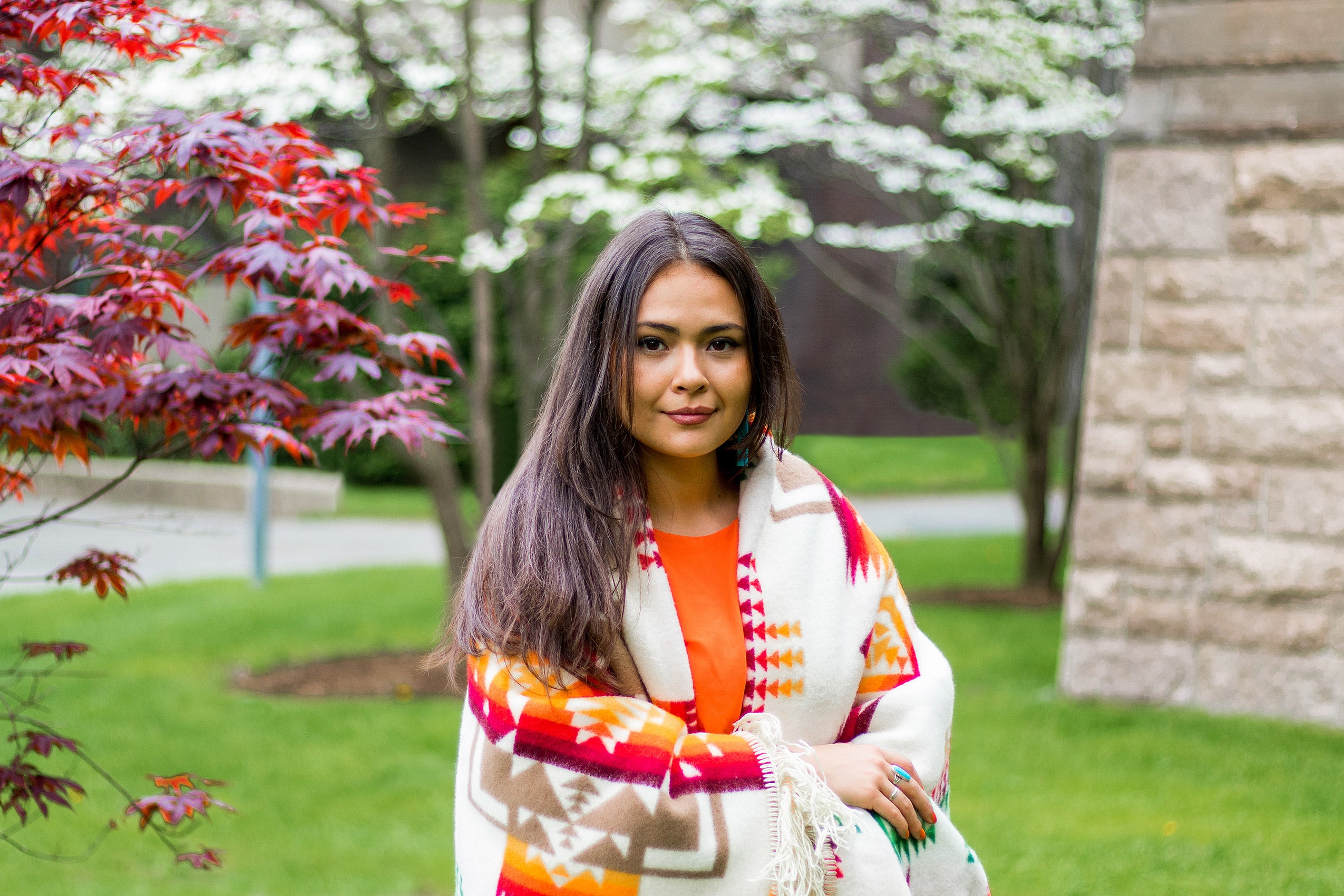This is the third in a series of profiles of students from the Harvard Law School Class of 2016.
Being Native American defines Elizabeth Reese ’16. Then again, so does being the granddaughter of a Lutheran minister from Pennsylvania. Together, the two have helped shape a woman and a lawyer.
Reese was raised 20 miles north of Santa Fe, New Mexico, at the foot of the Sangre de Cristo Mountains, as a member of the Pueblo of Nambé tribe. The village there is small and old—it dates back to the 14th century—as is the tribe that makes the reservation home. Some 1,100 members of the 2,000-person Nambé tribe live on the 20,000-acre reservation, which is filled with cottonwoods, juniper, and scrub oak, and surrounded by sandstone and mountains and river. Such isolation has helped the community maintain its culture and traditions.
Reese was raised squarely in that community and in that culture, although she’s always felt she belonged in two very different worlds. She grew being called Elizabeth but also Yunpovi (which means Willow Flower in the Tewa language). She may have been surrounded by scrub pine, but her father read her Homer as a child, which helped her navigate traditionally elite white spaces more easily than she might have otherwise.
She considered her educational journey an opportunity to learn things that would aid her in making a difference for her people—for her tribe specifically, but for native people more broadly. First, she went to Yale.
“When I went off to school at Yale I really wanted to make sure I understood the world of education and power that exists in America, because that world is something few Indian people have been a part of and understood,” says Reese. “And yet, that’s where so many decisions that impact us and define what will happen to us get made.”
As an undergraduate she developed a background in political theory, which led her to England and the University of Cambridge. There she earned a Master of Philosophy in political thought and intellectual history and did work on Indian political theory. She counts herself as one of the first Native Americans to attend the university and one of the first scholars there to focus on Indian ideas.
Reese’s commitment to the study—and protection—of Native concerns led her to Harvard Law School and shaped her focus during her three years. She built visibility, programming, and recruitment as a leader in the HLS Native American Law Students Association. She helped to write a District Court amicus brief intervening in a tribal water jurisdiction case through the Native Amicus Briefing Project. She also served as a congressional intern and a fellow for the Senate Judiciary Committee, and interned at the Department of Justice in the civil rights division.
Now she is hoping to become a warrior.
“There’s a common theme in Indian society that lawyers are the modern warriors for Indian people,” says Reese. “I’m really excited to become one of those warriors and to join the fight to ensure that tribal sovereignty survives for my children, my grandchildren, and my great grandchildren.”
After graduation Reese will clerk for Judge Amul R. Thapar at the U.S. District Court for the Eastern District of Kentucky. Late in the year she’ll head to Washington, D.C., as a Public Service Venture Fund Redstone Fellow at the NAACP Legal Defense and Educational Fund. The breadth of cases she’ll be part of—from litigating voting rights on one side of the country to school desegregation on the other side—excites her.
While Reese hopes to spend the early part of her career working on civil rights cases that affect the lives of people of color in the U.S—including her family members—she also hopes to someday practice Indian law. After all it’s the law, she says, that determines whether or not Indian tribes survive.
“It can’t be understated how fragile our future is—how our survival is still something we have to fight for,” says Reese. “Unlike a lot of other groups or identities, this is our only homeland. Our culture exists nowhere else in the world if we fail to ensure its survival here. I take that challenge very seriously and hope I can do all I can to protect my tribe and my people and our sovereignty.”
